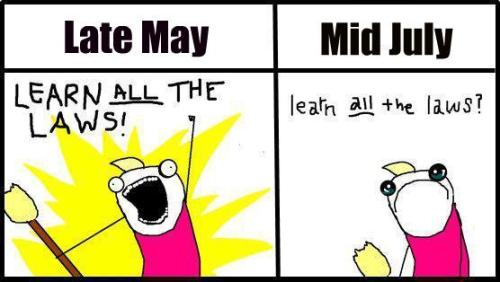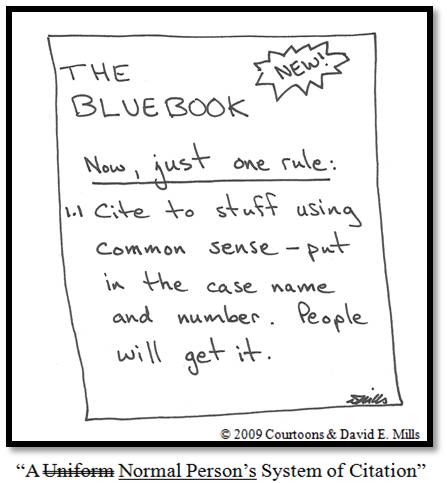Here are some classes you should consider taking before you graduate from law school. These skill building classes will help you regardless of what specialty you decide to enter. These classes will also be great for generalists who may not have selected a specialty. See: Should You Get a Law School Concentration?
(1) Administrative Law
Special Agent Gibbs makes his own rules. Other agencies are a bit more constrained.
We all know that for a bill to become a law Congress must pass the bill and then the president signs it. But what happens after that? This is where administrative agencies come in, as they are usually in charge of implementing the law passed by Congress. Many lawyers say they wish they took this class while in law school because of how frequently they must deal with, or at least analyze an agency's actions as part of their law practice.
What you'll learn in Administrative Law:
- How agencies promulgate rules and the proper procedures they must take
- Constitutional implications behind certain agency actions and how the president interacts with agencies
- Theories behind how agency operate
- How to challenge an agency's adoption of a rule and strategies
- How courts interpret agency rulemaking
(2) Mediation/Alternative Dispute Resolution
Negotiating a fair deal is often at the heart of Mediation/ADR
The term "alternative dispute resolution (ADR)" is increasingly a misnomer. In fact it is arguable that ADR is actually the normal ways of conducting dispute resolution. Given that courts are strapped for cash and a normal litigation may take years to complete, law students who understand these alternate processes may have an advantage. We especially recommend mediation, which is rapidly gaining popularity.
What you'll learn in Mediation/Alternative Dispute Resolution:
- How these alternative systems work with the court system
- The benefits, especially cost savings, of using an alternative process like mediation as opposed to going to court
- How to conduct yourself during the mediation or arbitration hearing
- Practicing mediator's opening statements and reframing of issues
- Depending on your law school you may also earn a certificate allowing you to practice mediation (States normally require a minimum of 40 hours of training before you can practice)
(3) Statutory interpretation
This now comes in a pocket-sized edition.
We all take the traditional common law classes in our one 1L year. But in many ways statutes have supplanted or even replaced the common law (just look at criminal law, for example). As a result, knowing how judges will interpret statutes is a critical tool for law students and lawyers. You'll especially have an advantage if you can use the tools of interpretation while another lawyer has to flounder about with rehashed arguments and poor logic.
What you'll learn in Statutory Interpretation:
- The different philosophies judges use when interpreting statutes
- What tools judges use when examining a statute such as how they determine whether a statute is ambiguous
- The role of legislative history
- What tools are commonly accepted and what tools of interpretation are controversial
- A framework of how you can analyze any statute or regulation
(4) Accounting for Lawyers
We realize you may feel this way towards math. But trust us, you'll live.
Okay, okay we realize that you went to law school because you didn't want to do math. But accounting is less about math and more about organizing information. If you want to go into business law, having a very basic knowledge of accounting will give you a leg up on the job.
What you'll learn in Accounting for Lawyers:
- Basic principles of accounting (don't worry it's not too hard)
- How accounting data can be useful in litigation or transactional negotiation work
- Legal standards for accountants and rules that apply to certain accounting practices
- How to look for evidence in accounting data
- How to spot fraud in accounting data
What other classes should law students take before they graduate?




















